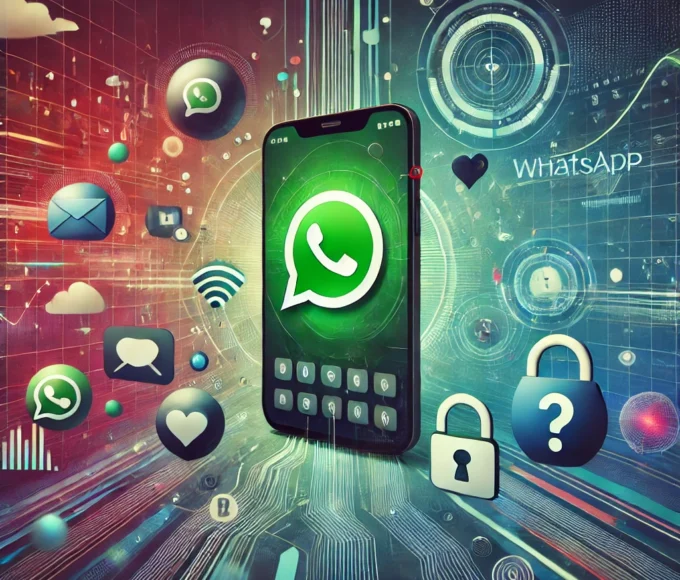With the advancement of technology and the growing dependence on mobile devices, ensuring cell phone security has become an increasingly relevant concern. From storing personal information to financial transactions, our smartphones play a central role in our lives, making protection against cyber threats crucial. In this article, we will explore several security measures that you can implement to protect your data and privacy.
You might like
- Tools for monitoring a cell phone
- Applications to control your cell phone from your computer
- Applications to monitor WhatsApp from another cell phone
- mSpy: The Complete Guide to Monitoring and Controlling a Cell Phone
Importance of Cell Phone Security
Before we delve into specific security strategies, it is important to understand why protecting our mobile devices is so crucial today.
Storage of Sensitive Information
Our smartphones contain vast amounts of personal information such as passwords, photos, emails, call logs and text messages. If this information falls into the wrong hands, it can be exploited for fraudulent activities or even blackmail.
Cyber Threats on the Rise
With the increased use of mobile devices, cybercriminals have found new ways to exploit vulnerabilities to access personal and financial data. From malicious apps to unsecured public Wi-Fi networks, there are a number of threats that can compromise your phone's security.
Privacy Protection
In addition to protecting our data, it is essential to preserve our privacy. With the proliferation of apps and services that collect user data, it is important to take steps to control access to personal information and prevent unwanted surveillance.
Cell Phone Security Measures
Now that we understand the importance of cell phone security, let's explore some measures you can implement to ensure your devices and data are protected.
Operating System Update
Keeping your phone's operating system up to date is one of the most effective ways to protect against known vulnerabilities. Frequent updates provided by manufacturers often include security fixes that address flaws that can be exploited by hackers.
Use cases: Configure your device to receive automatic operating system updates. This will ensure you always have the latest version installed, minimizing the risk of exploiting vulnerabilities.
Pros: Regular updates ensure your device is protected against the latest security threats, keeping your data safe.
Cons: Some updates may require a significant amount of storage space, which can be a problem for devices with little space available.
Using Strong Passwords and Biometrics
Protecting access to your cell phone with strong passwords or biometric authentication (such as fingerprint or facial recognition) is critical to preventing unauthorized access to your data.
Use cases: Use a combination of uppercase and lowercase letters, numbers, and special characters to create complex passwords. Additionally, configure biometric authentication, if available, to add an additional layer of security.
Pros: Strong passwords and biometric authentication make unauthorized access to your device significantly more difficult, protecting your data from attackers.
Cons: Occasionally, biometric authentication may fail, especially in adverse lighting conditions or if your fingerprint is not registered correctly.
Using VPN on Public Wi-Fi Networks
When you connect to public Wi-Fi networks, such as those found in cafes, airports and hotels, your data may be at risk of being intercepted by hackers. Using a Virtual Private Network (VPN) can secure your connection and encrypt your data, making it inaccessible to third parties.
Use cases: Install and activate a VPN whenever you connect to public Wi-Fi. This will ensure that your data is protected from interception and espionage.
Pros: A VPN creates a secure tunnel to transmit your data, protecting your privacy and security while you browse the internet on public Wi-Fi networks.
Cons: Some VPN services can slow down your internet connection, especially when using low-quality Wi-Fi networks.
Installing Applications Only from Trusted Sources
Avoid installing apps from unknown or untrusted sources, as these may contain malware designed to steal your personal data or harm your device.
Use cases: Download apps only from your operating system's official app store (such as the App Store for iOS devices and the Google Play Store for Android devices). Check app ratings and reviews before installing them to ensure their reliability.
Pros: By only installing apps from trusted sources, you significantly reduce the risk of downloading malware or malicious apps.
Cons: Some app stores may not fully scan all available apps, which means there is still a small chance of installing a malicious app, even from a seemingly trustworthy source.
Conclusion
Protecting cell phone security is essential to guarantee the privacy and security of your personal and financial data. By implementing practices such as keeping your operating system up to date, using strong passwords and biometric authentication, using a VPN on public Wi-Fi networks, and only installing applications from trusted sources, you can significantly reduce the risk of becoming a victim of fraudulent activity or breaches. privacy. Always remember to be aware of the latest security threats and adjust your security practices as needed to protect your devices and data.
With these measures in place, you can enjoy all the conveniences offered by smartphones without compromising






